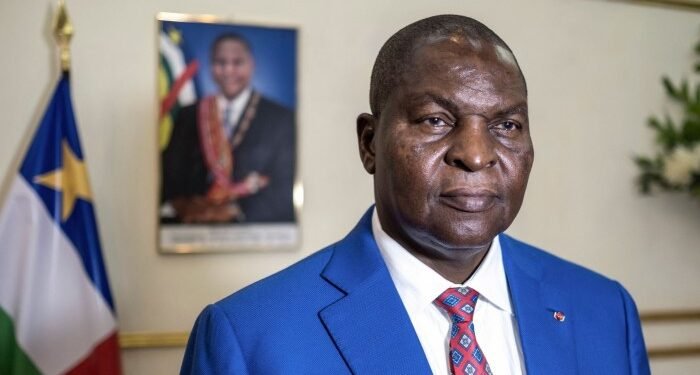Unlock the Editor’s Digest for free
Roula Khalaf, Editor of the FT, selects her favourite stories in this weekly newsletter.
The leader of one of Africa’s poorest nations has mimicked Donald Trump with the launch of a so-called memecoin, only to see its value immediately crash over concerns the project was an elaborate fake.
Faustin-Archange Touadéra, president of the Central African Republic, said on X that the country’s memecoin was “an experiment designed to show how something as simple as a meme can unite people, support national development and put CAR on the world stage in a unique way”.
Memecoins are a type of cryptocurrency whose value is entirely driven by speculation and popularity among traders. They began as tokens related to online viral moments or popular cartoons but have since become a means for anyone to raise money quickly, and have been criticised for being similar to “pump and dump” share schemes.
The $CAR memecoin’s value has plunged 95 per cent since it launched on Sunday, to trade around $0.04 on Tuesday. The token has a market capitalisation of $37mn, according to data provider CoinMarketCap, down from a shortlived peak of $350mn.
The launch was hit by unexpected snags as X suspended an account created by the government to promote news about the memecoin, after users posted concerns about the project’s legitimacy. Deepfake detection tools also flagged Touadéra’s announcement video as suspicious.
But Albert Yaloké Mokpeme, a government spokesperson, told the Financial Times late on Monday: “The president has officially announced the launch of the memecoin of the Central African Republic.”
Touadéra also announced a new website and X account, and the president has continued to post about the project from his verified X account.
Its launch comes nearly three years after the mineral-rich nation became only the second country after El Salvador to adopt bitcoin as legal tender, attracting criticism from the IMF and a regional central bank. After the country’s top court declared the move unconstitutional, CAR ultimately reversed its decision months later.
CAR’s pivot to memecoins appears to follow in Trump’s footsteps as a means to raise money, with 35 per cent of the funds raised by the token going to “country development”, according to its website.
Trump and his wife Melania both launched memecoins last month, inspiring a wave of scams and copycat launches and attracting widespread criticism from crypto investors and executives.
CAR’s brief adoption of bitcoin in 2022 saw little uptake among citizens of one of the world’s poorest countries. The landlocked nation, whose estimated GDP per capita of $549 makes it poorer than Somalia, remains under-developed, while use of mobile phones and other internet devices is not widespread, deterring participation in cryptocurrencies.
The former French colony of 5.7mn people has been wracked by violence for more than a decade, with the government in Bangui relying on paramilitary forces from the Russian-backed Wagner Group to thwart an attempted rebellion in 2020.

Voters have since approved a new constitution that would allow Touadéra to run for a third term in elections this year.
Touadéra, a former mathematics professor with two doctorates, seems determined to make his country a haven for cryptocurrency enthusiasts.
Despite its fall in value, in a video posted on X on Monday he called the memecoin’s launch a “resounding success”.
He also praised “the thousands of people both within our country and around the world . . . who joined this movement”, adding: “We are building for the long term!”










